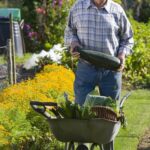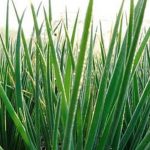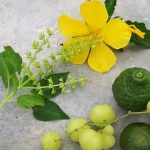Vegetable gardening in Southwest Florida offers a unique and rewarding experience for gardening enthusiasts. The region’s subtropical climate and abundant sunshine create an ideal environment for cultivating a variety of vegetables year-round. Whether you’re a seasoned gardener or just starting out, the lush landscapes of Southwest Florida provide ample opportunities to grow your own produce and connect with nature.
With its sandy soil and warm temperatures, Southwest Florida presents both advantages and challenges for vegetable gardening. Understanding the specific climate and growing conditions in this region is crucial to successfully cultivating a thriving garden. From choosing the right vegetables to implementing effective soil preparation techniques, there are various factors to consider when embarking on your vegetable gardening journey in Southwest Florida.
In this article, we will explore the best vegetables to grow in Southwest Florida, along with valuable tips for successful gardening practices. From pest control strategies to proper watering techniques, we’ll cover all aspects of vegetable gardening tailored to the unique environment of Southwest Florida. Whether you’re looking to enhance your culinary creations or simply enjoy the therapeutic benefits of gardening, vegetable gardening in Southwest Florida offers endless possibilities for growth and enjoyment.
Climate and Growing Conditions in Southwest Florida for Vegetable Gardening
Southwest Florida’s climate and growing conditions offer a unique opportunity for vegetable gardening enthusiasts. The region experiences a subtropical climate characterized by warm temperatures, high humidity, and ample sunshine year-round. The extended growing season in Southwest Florida allows for multiple harvests of various vegetables throughout the year, making it an ideal location for those interested in home gardening.
Challenges and Benefits of Southwest Florida Climate
While the mild winters and long growing season in Southwest Florida are advantageous for vegetable gardening, gardeners may face challenges such as intense heat, heavy rainfall, and occasional tropical storms. To mitigate these challenges, gardeners can utilize techniques like shade covers, raised beds, and proper watering schedules to maintain a successful garden. On the flip side, the abundance of sunshine and warm temperatures also create optimal conditions for rapid growth and flourishing harvests.
Adaptability of Vegetable Varieties
In Southwest Florida, gardeners have a wide range of vegetable varieties to choose from that are well-suited to the local growing conditions. Some popular options include tomatoes, peppers, eggplant, cucumbers, squash, herbs, and leafy greens like lettuce and kale. These varieties thrive in the warmth and humidity of the region while providing a bountiful harvest for home growers. Additionally, experimenting with heirloom or hybrid seeds can help diversify a vegetable garden and ensure success in Southwest Florida’s climate.
Best Vegetables to Grow in Southwest Florida
When it comes to vegetable gardening in Southwest Florida, choosing the right vegetables to grow can make a significant difference in the success of your garden. Due to the unique climate and growing conditions in this region, some vegetables thrive better than others.
Some of the best vegetables to grow in Southwest Florida include tomatoes, peppers, cucumbers, squash, beans, and herbs like basil and oregano. These vegetables are well-suited for the warm temperatures and ample sunshine that characterize this area.
Tomatoes are particularly popular among vegetable gardeners in Southwest Florida due to their versatility and abundant harvests. Varieties such as cherry tomatoes, roma tomatoes, and beefsteak tomatoes do well in the local climate. Peppers, both sweet and hot varieties, also thrive in the warm weather of Southwest Florida. Cucumbers are another favorite among gardeners as they are easy to grow and produce an abundance of fruits throughout the season.
In addition to these popular choices, leafy greens like lettuce and spinach can also be successfully grown in Southwest Florida. These vegetables are great for salads and can be continuously harvested for fresh greens. By selecting the best vegetables suited for the local climate, vegetable gardening enthusiasts can ensure a bountiful harvest year-round.
| Vegetable | Best Growing Season |
|---|---|
| Tomatoes | Year-round |
| Peppers | Spring/Fall |
| Cucumbers | Spring/Summer |
| Lettuce | Fall/Winter |
Tips for Successful Vegetable Gardening in Southwest Florida
When it comes to successful vegetable gardening in Southwest Florida, there are certain tips and tricks that can help ensure a bountiful harvest. The unique climate and growing conditions in this region require specific attention to detail in order to optimize plant growth and health. Here are some important tips for those looking to start or improve their vegetable gardening endeavors in Southwest Florida:
- Choose the Right Vegetables: Selecting vegetables that are well-suited to the warm and humid climate of Southwest Florida is crucial for success. Popular options include tomatoes, peppers, cucumbers, squash, and herbs like basil and mint.
- Plant at the Right Time: Timing is everything when it comes to planting your vegetables in Southwest Florida. Aim for planting during the cooler months to avoid the intense heat of summer. Some vegetables can be planted year-round, so make sure to research the specific planting times for each crop.
- Provide Adequate Sunlight: Most vegetables require at least 6-8 hours of sunlight per day for optimal growth. Make sure your garden plot is situated in a location that receives plenty of sunlight throughout the day.
In addition to these general tips, it’s important to pay attention to the soil quality, watering schedule, and pest management strategies for your vegetable garden in Southwest Florida. By following these guidelines and staying informed about best practices for gardening in this region, you can enjoy a successful and fruitful harvest year after year.
- Monitor Soil Moisture Levels: In the hot and humid climate of Southwest Florida, it’s essential to keep an eye on soil moisture levels to ensure that your plants are receiving adequate hydration. Consider investing in a drip irrigation system or watering early in the morning or late in the evening to prevent water evaporation.
- Use Organic Pest Control Methods: To keep pests at bay without harmful chemicals, try using natural pest control methods like neem oil spray, companion planting with marigolds or garlic, and hand-picking large insects like caterpillars off your plants.
- Maintain Regular Harvesting: Regularly harvesting your vegetables not only ensures a fresh supply of produce but also encourages continued fruit production from plants like tomatoes and peppers. Be sure to pick ripe fruits promptly to prevent them from becoming overripe or attracting pests.
Soil Preparation and Maintenance for Vegetable Gardening in Southwest Florida
When it comes to vegetable gardening in Southwest Florida, proper soil preparation and maintenance are crucial for the success of your crops. The sandy soil common in this region can be a challenge, but with the right techniques, you can create a fertile environment for your vegetables to thrive. Here are some tips for preparing and maintaining your soil:
1. Amending the Soil: One of the first steps in preparing your soil for vegetable gardening in Southwest Florida is to amend it with organic matter. Compost, aged manure, and other organic materials can help improve the texture and nutrient content of the soil. Incorporating these materials into the top few inches of soil before planting will provide a better growing environment for your vegetables.
2. pH Levels: Another important factor to consider when preparing your soil is the pH level. Most vegetables prefer slightly acidic soil, so it’s essential to test your soil’s pH and make any necessary adjustments using lime or sulfur. Aim for a pH level between 6.0 and 6.8 for optimal vegetable growth.
3. Mulching and Weed Control: Once you’ve planted your vegetables, mulching can help maintain moisture levels in the soil and suppress weed growth. Organic mulches like straw or shredded leaves can also break down over time, adding more nutrients to the soil. Regular weeding is also important to prevent competition for resources among your vegetables.
By taking these steps to prepare and maintain your soil properly, you can create an ideal growing environment for vegetable gardening in Southwest Florida. With good soil structure, balanced pH levels, and effective mulching techniques, you’ll be on your way to a successful harvest of fresh, homegrown produce right from your own backyard garden.
Pest Control and Disease Management in Vegetable Gardening in Southwest Florida
Pests and diseases can pose significant challenges to vegetable gardening in Southwest Florida, where the warm and humid climate creates ideal conditions for their proliferation. It is essential for gardeners to be proactive in implementing strategies for pest control and disease management to ensure a successful harvest.
One of the key steps in preventing pests and diseases is to practice good garden hygiene. This includes regularly removing any plant debris, weeds, and fallen fruits or vegetables that can harbor harmful organisms. Maintaining proper spacing between plants can also help improve airflow, reducing the likelihood of fungal diseases taking hold.
In addition to preventative measures, organic solutions like neem oil, insecticidal soaps, and beneficial insects can be effective in controlling common pests such as aphids, caterpillars, and mites. For fungal diseases like powdery mildew or downy mildew, copper-based fungicides or sulfur sprays may be recommended.
It’s important for gardeners to closely monitor their plants for any signs of infestation or infection and take action promptly to prevent them from spreading. By being vigilant and employing integrated pest management techniques, gardeners can minimize the impact of pests and diseases on their vegetable crops in Southwest Florida.
Importance of Watering and Irrigation Systems in Southwest Florida Vegetable Gardening
Watering and irrigation systems play a crucial role in the success of vegetable gardening in Southwest Florida. With the hot and humid climate prevalent in this region, maintaining proper hydration for your plants is essential for their growth and development. Without adequate water supply, vegetable plants can quickly wilt and suffer from stress, impacting their overall health and productivity.
Choosing the Right Irrigation System
When it comes to vegetable gardening in Southwest Florida, selecting the right irrigation system can make a significant difference in your garden’s success. Drip irrigation systems are often recommended due to their efficiency in delivering water directly to the plant roots, minimizing evaporation losses. This method also helps prevent moisture-related diseases by keeping foliage dry. Additionally, incorporating timers and sensors into your irrigation system can help automate watering schedules based on specific plant needs and weather conditions.
Water Conservation Strategies
Given the environmental challenges faced in Southwest Florida, implementing water conservation strategies is imperative for sustainable vegetable gardening practices. One approach is to mulch around plants to retain soil moisture and reduce evaporation rates. Rain barrels can also be utilized to collect rainwater runoff for use in irrigating your garden. Grouping plants with similar water requirements together can also help optimize water usage efficiency.
Monitoring Plant Water Needs
Regularly monitoring your vegetable plants’ water needs is essential for ensuring they receive adequate hydration without being overwatered. Symptoms of underwatering include wilting, yellowing leaves, and stunted growth, while signs of overwatering include yellowing leaves with brown edges or root rot issues. By observing these indicators and adjusting your watering practices accordingly, you can maintain healthy and thriving vegetables in your Southwest Florida garden.
Harvesting and Storage of Vegetables in Southwest Florida
When it comes to vegetable gardening in Southwest Florida, knowing when and how to harvest your crops plays a crucial role in the success of your garden. The warm climate of Southwest Florida allows for year-round harvesting of various vegetables, providing a bountiful supply of fresh produce. It is essential to monitor the growth and maturity of your vegetables closely to ensure they are harvested at the peak of freshness.
Some of the best practices for harvesting include picking vegetables early in the morning when temperatures are cooler to retain their crispness and flavor. Additionally, using sharp tools such as pruners or shears can help prevent damage to the plants during harvest. Proper handling techniques post-harvest, such as storing different types of vegetables separately in breathable containers or bags, can extend their shelf life and maintain optimal freshness.
In terms of storage, certain vegetables like tomatoes, peppers, and cucumbers are best kept at room temperature while root vegetables such as carrots and beets should be stored in a cool, dark place. Storing herbs like basil and cilantro with their stems submerged in water can also prolong their freshness. By following these guidelines for harvesting and storage, you can enjoy a continuous supply of homegrown vegetables from your garden throughout the year.
| Vegetable | Best Storage Method |
|---|---|
| Tomatoes | Room temperature away from direct sunlight |
| Carrots | Cool, dark place with high humidity |
| Basil | Stems submerged in water on the countertop |
Community Resources and Events for Vegetable Gardening Enthusiasts in Southwest Florida
In Southwest Florida, vegetable gardening enthusiasts have access to a variety of community resources and events that can enhance their gardening experience. From local gardening clubs to farmers’ markets and workshops, there are plenty of opportunities for individuals to connect with like-minded individuals and learn from experts in the field. These resources can provide valuable information on new techniques, best practices, and even help troubleshoot any issues that may arise in your garden.
One such resource is the Southwest Florida Gardening Symposium, an annual event where experienced gardeners share their knowledge through informative seminars and hands-on demonstrations. This symposium not only educates attendees on different aspects of vegetable gardening but also fosters a sense of community among participants who share a passion for growing their own produce. Additionally, local nurseries often host plant sales and gardening classes, providing gardeners with access to quality plants and expert advice.
For those looking to get more involved in the vegetable gardening community in Southwest Florida, joining a local garden club can be a rewarding experience. These clubs often organize garden tours, seed swaps, and other social events that bring members together to celebrate their shared love for gardening.
By participating in these activities, individuals can expand their knowledge, network with other gardeners, and find inspiration for their own gardens. Overall, the wealth of community resources and events available in Southwest Florida makes it an ideal place for vegetable gardening enthusiasts to thrive and connect with others who share their passion.
Frequently Asked Questions
When Can I Plant Vegetables in Southwest Florida?
In Southwest Florida, vegetables can typically be planted from late August through November for the fall growing season. It’s important to consider the specific vegetable varieties and their recommended planting times to ensure successful growth.
What Is the Best Month to Plant Vegetables in Florida?
The best month to plant vegetables in Florida depends on the region within the state. Generally, for South Florida, October through February is considered ideal for planting a variety of vegetables due to the cooler temperatures and lower humidity during those months.
What Are the Best Vegetables to Grow in South Florida?
The best vegetables to grow in South Florida include tomatoes, peppers, eggplant, cucumbers, squash, beans, and herbs like basil and mint. These crops tend to thrive in the warm climate and can produce well with proper care and maintenance throughout the growing season.

If you’re looking to get into vegetable gardening, or are just looking for some tips on how to make your current garden better, then you’ve come to the right place! My name is Ethel and I have been gardening for years. In this blog, I’m going to share with you some of my best tips on how to create a successful vegetable garden.





